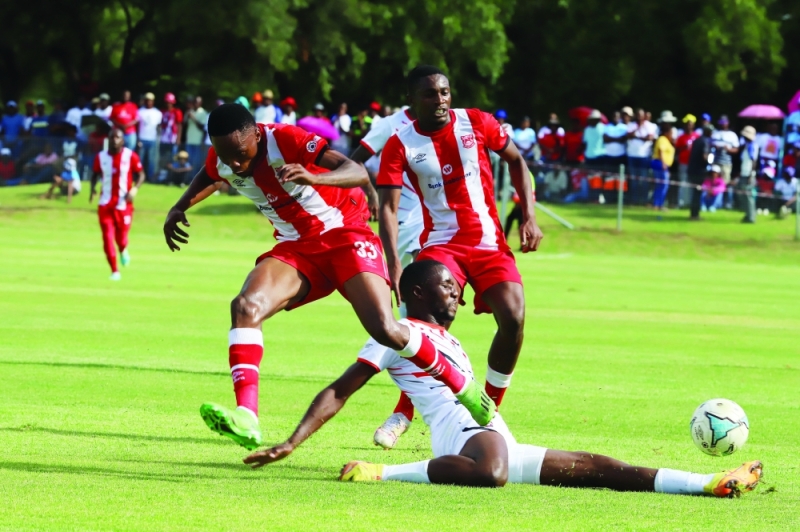The ball frequently played during political campaigns
Mqondisi Dube | Saturday July 20, 2024 06:00


The International Table Tennis Federation (ITTF) Africa vice president (development), Andrew Mudibo, wants to see politicians, just like they do with football, use other codes to push their agendas. Mudibo, who is in the country for the ITTF Youth Championships that are ongoing in Gaborone, told Mmegi’s weekly online show, Sport On, that if politicians were to utilise other codes for their campaigns, it would positively impact sport. But as it stands, football, which has been by far the continent’s most popular sport, has benefited as politicians take advantage of its mass appeal to seek votes.
“Let me say, unfortunately, in Africa, politicians use football to push their agenda. They have never used table tennis. I would have loved to see politicians use table tennis to push their agenda,” Mudibo said. “But for us, table tennis is a royal sport. I am not saying football is a thuggish sport. It is still just football, a sport that we all play when we are young. We are saying please continue supporting all sport, not just football alone. Give each one of them an opportunity,” he added. However, statistics indicate the skewed treatment of sport codes will continue. Football is ranked by far the most popular sport on the continent. Out of Africa’s 54 countries, only Eritrea is unrated in the FIFA rankings, but football is still played in the country located in the Horn of Africa region. The 2025 Africa Cup of Nations has attracted 52 of the 54 countries, with only Eritrea and the Seychelles excluded. This means an impressive 96% of all African nations will play ball. Even the world football governing body, FIFA, with 211 members, is bigger than the United Nations, which is represented by 193 countries. The mass participation in football has been attributed to the game’s accessibility and simplicity. From a ball made of plastics to goalposts marked using bricks or stones, there has been no cheaper form of sport. Players are mostly barefooted, particularly in the remote areas, but that has not punctured the game’s mass appeal. Athletics comes a distant second as Africa has produced mostly excellent middle and long-distance runners. Other sports like cricket, rugby and golf, require specialised equipment and skills, which have seen them classified as ‘elitist'. Mudibo is credited with playing a part in spreading the table tennis game in his native Kenya.
As a 17-year-old, he took deliberate steps to ensure children in the remote areas were involved in table tennis, which was largely regarded as a sport for the elite. Despite the efforts, table tennis is not close to attracting a full house at continental championships. At the ongoing ITTF Youth Championships in Gaborone, 20 out of Africa’s 54 nations were expected. This represents 37% of the overall attendance. However, other nations dropped out, leaving the tournament with 17 participating countries. In the realm of other sports codes, this would represent considerable success, but the same cannot be said of football. For Mudibo and other like-minded proponents of equity in all codes, the statistics are still heavily biased towards football. In his paper, Football Politics and Cultural Production in Africa: Issues and Discourses, Floribert Endong, argues that while the narrative is that football and politics do not mix, the game has, since time immemorial, become politicised.
He further argues that governments and political parties often use football for political propaganda. Politicians opportunistically use every available platform to advance their agendas, and football within the continent, has been the vehicle to push their narrative. Other popular sports, like athletics, have also been used by politicians as part of covert campaigns, where the welfare of the athletes becomes of primary interest to political parties or the government. And as Botswana braces for its General Election, sport and football in particular, will play a magnified role as politicians scour the length and breadth of their constituencies in search of the crucial vote.
